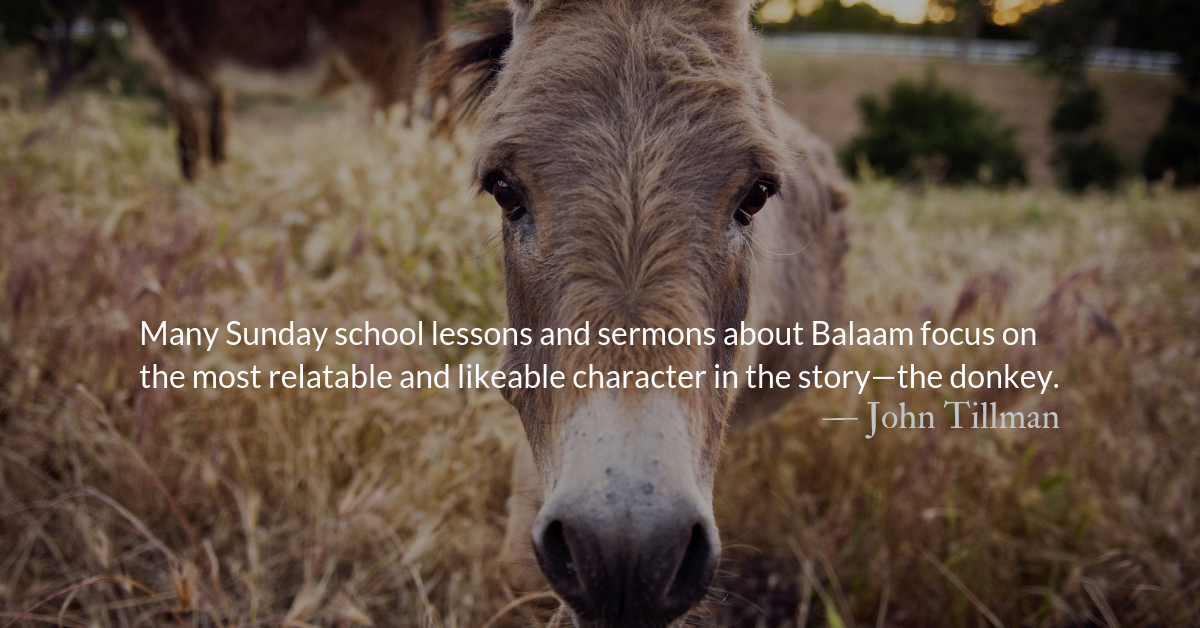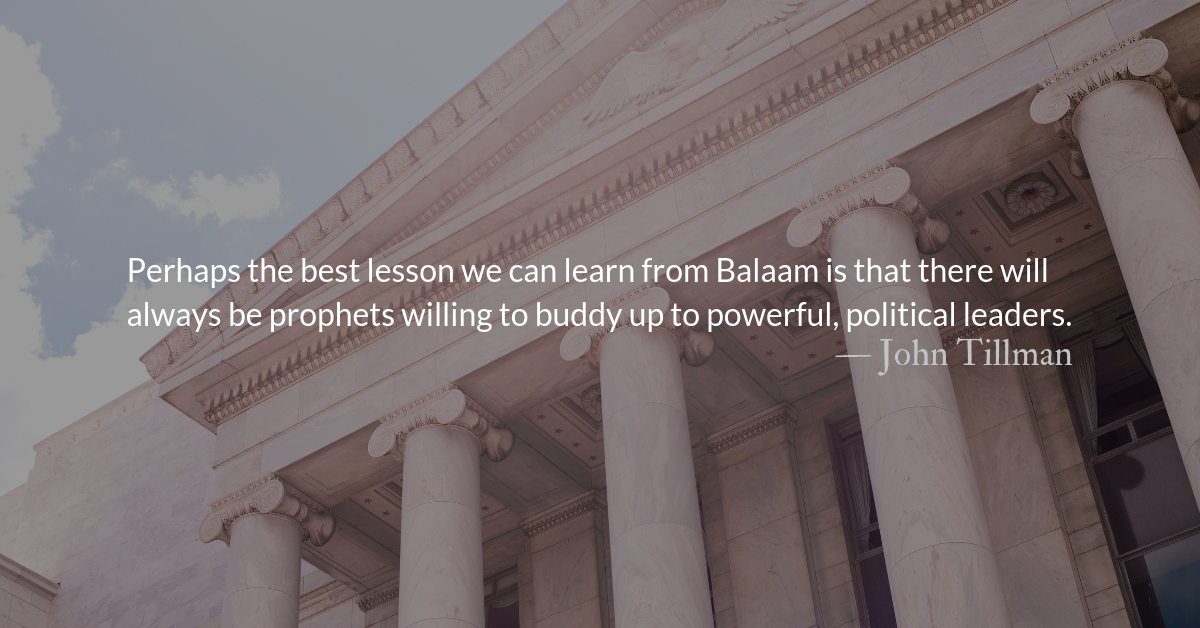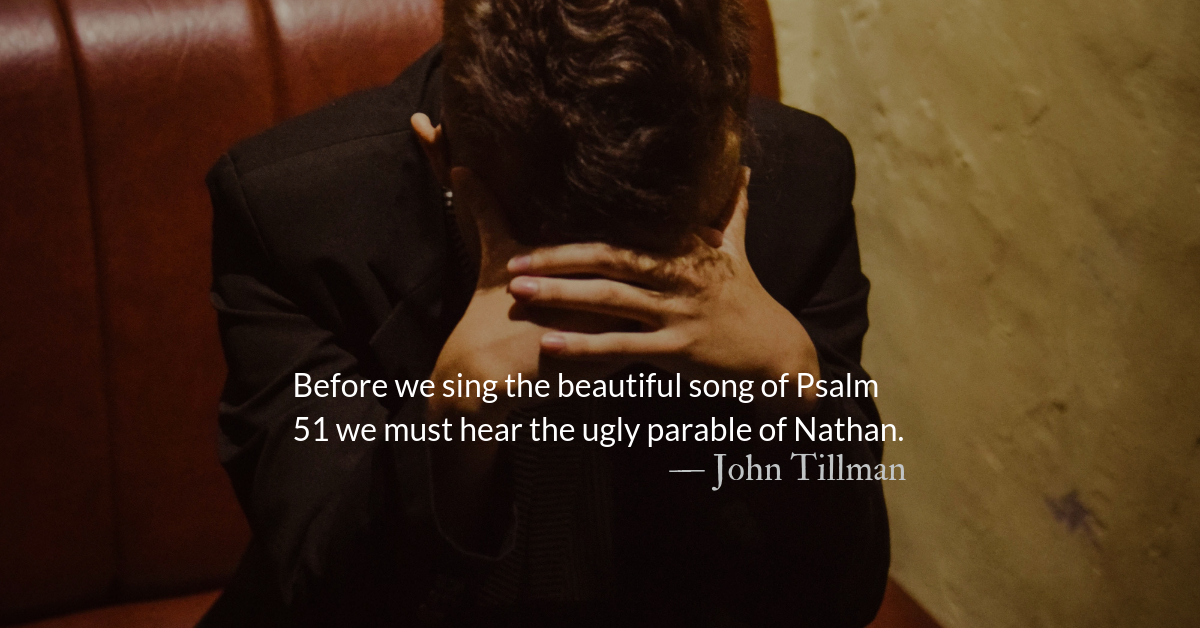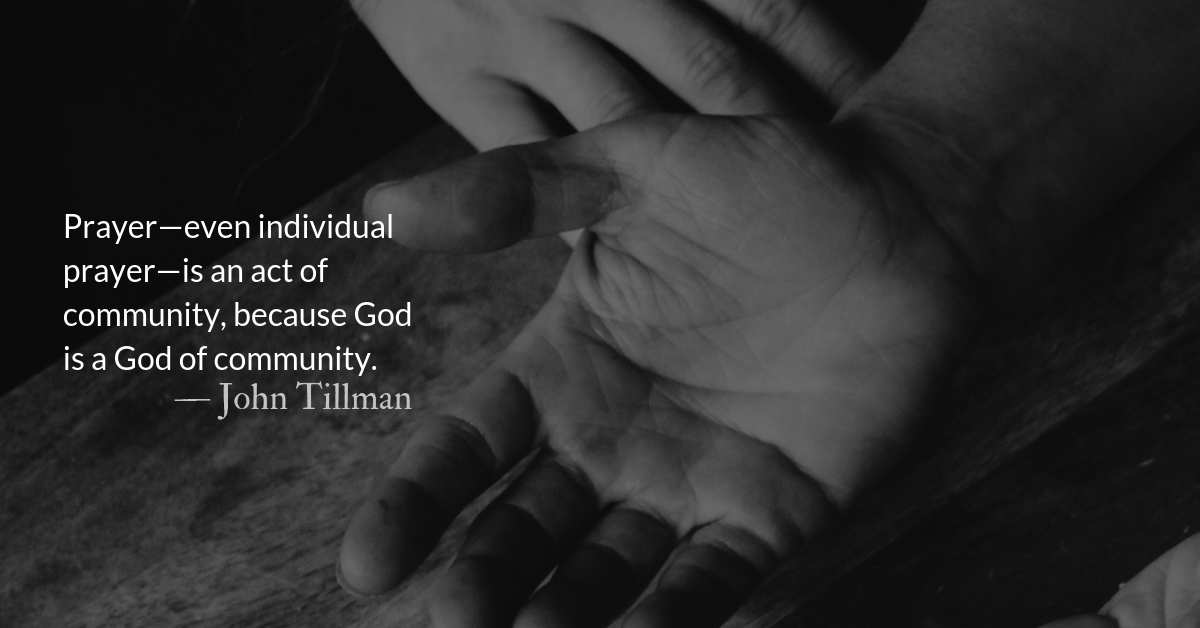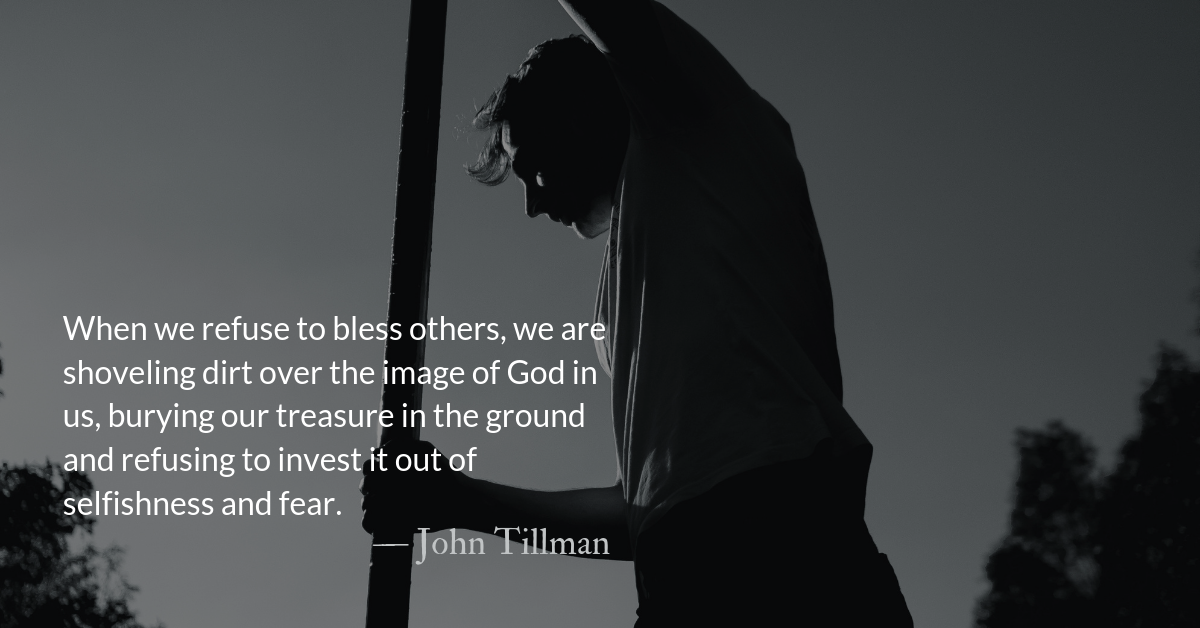Numbers 23.16, 27-28
The Lord met with Balaam and put a word in his mouth and said, “Go back to Balak and give him this word.”
Then Balak said to Balaam, “Come, let me take you to another place. Perhaps it will please God to let you curse them for me from there.” And Balak took Balaam to the top of Peor, overlooking the wasteland.
Jude 1.11
Woe to them! They have taken the way of Cain; they have rushed for profit into Balaam’s error; they have been destroyed in Korah’s rebellion.
Reflection: The Prophet of Profit
By John Tillman
Many Sunday school lessons and sermons about Balaam focus on the most relatable and likeable character in the story—the donkey. Even the deadly angel who comes to warn Balaam against colluding with Balak likes the donkey better than the man. The angel goes to the effort to explain that if he had killed Balaam he would have been careful to spare the donkey’s life.
Balaam may seem a minor, unpopular character but he has an impressive string of mentions throughout scripture and seems to enjoy a relationship with God that sounds remarkably similar to that of other prophets in scripture whose ethical principles are far higher. Balaam also makes multiple prophecies about Israel that are not only correct, but are often beautiful. For example:
“No misfortune is seen in Jacob,
no misery observed in Israel.
The Lord their God is with them;
the shout of the King is among them.”
Yet despite his close relationship with God and his ability to hear God speak Balaam seems to show the Lord no loyalty, reverence, or love. He is focused on attempting to do what Balak wants, even when God had prevented him from doing it, he tries again. And again.
As modern believers we have many advantages over prophets and priests in ancient times. We do not need to rely on divination, or strange practices to hear God. God’s Word is available to us in almost any language we could want and we have huge opportunities for deep study and understanding of the Bible. Not only that, but as Christians we have the indwelling power of the Holy Spirit who Christ promised would teach us the Scriptures and what they mean.
But despite all our advantages, we can sometimes still fall into the error of Balaam, thinking that God and the Word of the Lord can be used in a utilitarian way, whether that is to curse others or to bless ourselves.
In our culture, as in Balaam’s, curses are more valuable, clickable, profitable content than blessings. But despite our culture and our tendency to desire to bless ourselves, may we seek God for the joy of his presence, rather than the marketability of his miracles. And may we make our proclamation of God’s Word a blessing to those who hear it and never a curse.
Prayer: The Refrain for the Morning Lessons
I will bear witness that the Lord is righteous; I will praise the Name of the Lord Most High. — Psalm 7.18
– From The Divine Hours: Prayers for Springtime by Phyllis Tickle.
Today’s Readings
Numbers 23 (Listen – 4:01)
Psalm 64-65 (Listen – 2:39)
Thank You!
Thank you for reading and a huge thank you to those who donate to our ministry, keeping The Park Forum ad-free and enabling us to continue to produce fresh content. Every year our donors help us produce over 100,000 words of free devotionals. Follow this link to support our readers.
Read more about Political Promises
May we not trade our role as ambassadors of a heavenly kingdom for an inferior role as a political party’s “yes-men.”
Read more about The Seductive Idolatry of Politics
Politics is the idol we bring with us to church just as the Israelites worshiped Baal alongside Jehovah. Israel continued this practice until eventually, altars to Baal were set up in God’s temple supplanting true worship.


